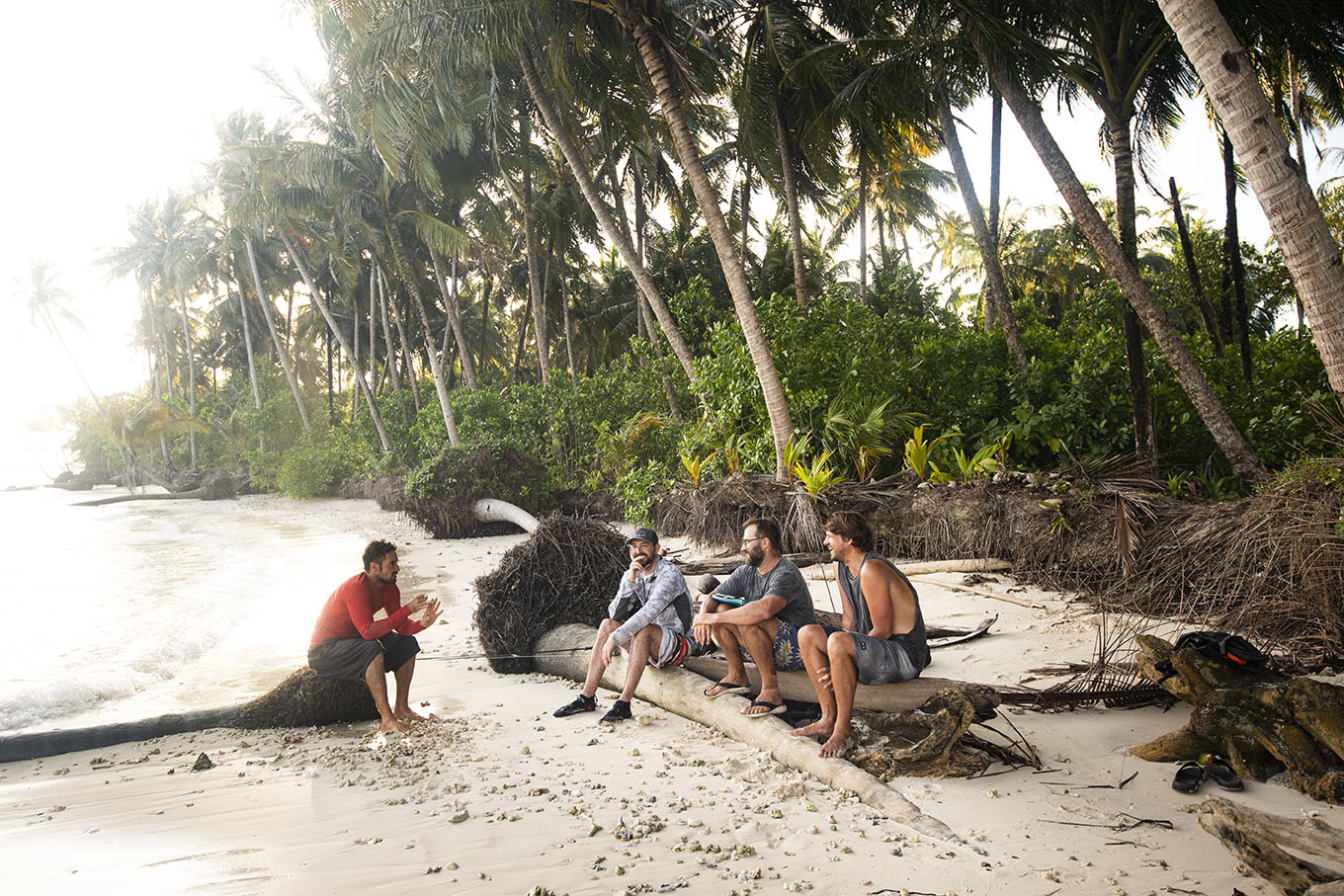
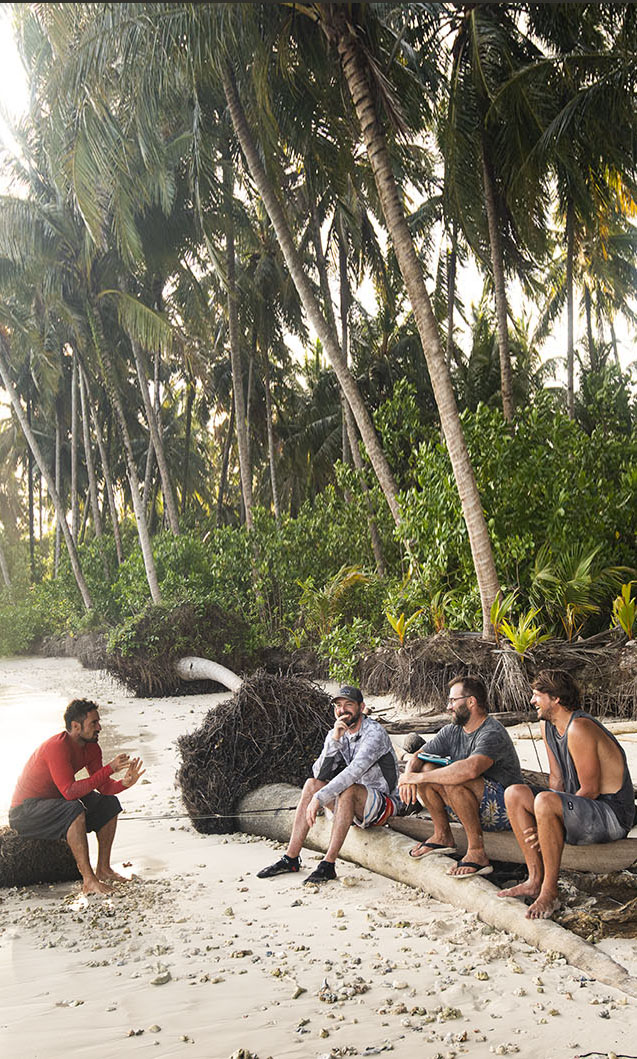
The Pinang project is a full-hearted effort by four friends to preserve something beautiful and share it with the world. Part surf sanctuary, part nature reserve, it is an undertaking fueled by a common respect for nature and a love of adventure. It is a passion project in the truest sense.
There are no big investors here, just our little community building things from the ground up. And by community, we mean us four partners–Tomas, Stephan, Martin, and Richard–and the fine local people who make up our small island team. Together, we have poured time, labor, money, and scholarship into the project, simply because we believe in it. Tomas was the first among us to encounter Pinang. A dedicated conservationist, he had been campaigning for the protection of turtle nesting sites on Bangkaru Island and had begun to survey sites in other parts of the Banyak Archipelago when he chanced to lay eyes upon it. The island was wild, uninhabited, and unspoilt, and Tomas was immediately struck by its beauty and the conviction that he needed to stop it from becoming just another palm oil plantation. With this end clearly in mind, he enlisted the help of long-time friend Stephan, a seasoned photographer who knows Indonesian culture and language. Stephan would join as partner and work with the landowners to obtain administerial rights to the island, as well as help begin recruiting local residents to the team. Beyond his conservational vision, Tomas saw a business opportunity. Alongside its castaway, paradisial appeal, Pinang and the surrounding islands presented fantastic conditions for surfing, fishing, diving, and other adventurous pursuits. This was a chance to develop the island in an ecologically responsible manner and share it with the world, while also opening up new job opportunities for the local people. To assist with this side of things, Martin, an old schoolmate and businessman from back home, came on board the project, along with Martin’s colleague Richard, an avid surfer, world-traveller, and nature lover. The duo had recently been entertaining the idea of setting up a surf house in Portugal, but upon learning of the good work being done by Tomas and Stephan, were immediately attracted to the project.
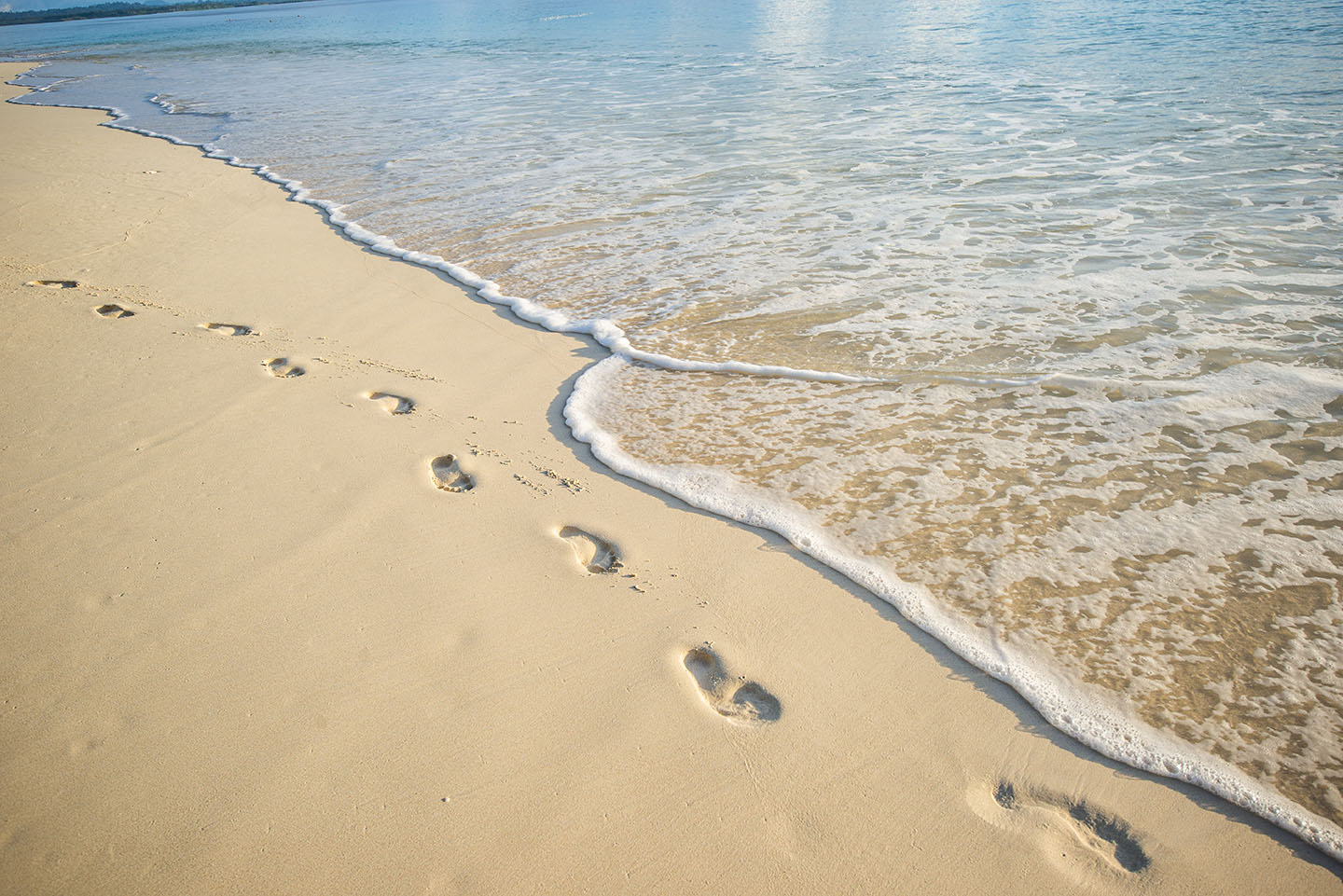
The early stages of the project were really a matter of circumventing various obstacles, logistical and otherwise. In the beginning, apart from a fisherman’s shanty or two, there was no infrastructure to speak of and no access to fresh water–it was pure jungle. And the logistics of getting people and supplies to and from the island so that infrastructure could even take root were daunting, to say the least. Additionally, high humidity and sea spray combined to have a corrosive effect on plant life and equipment. But none of these difficulties is insurmountable, and today, by intelligent system and forethought, we have answered the logistical question and have learned to adapt to the challenges posed by the elements. As a result, infrastructure has, indeed, taken root–the island boasts five guest houses plus employees’ quarters, all powered by a combination of generators and solar energy, along with a permaculture garden and four wells dug to supply ample quantities of freshwater.
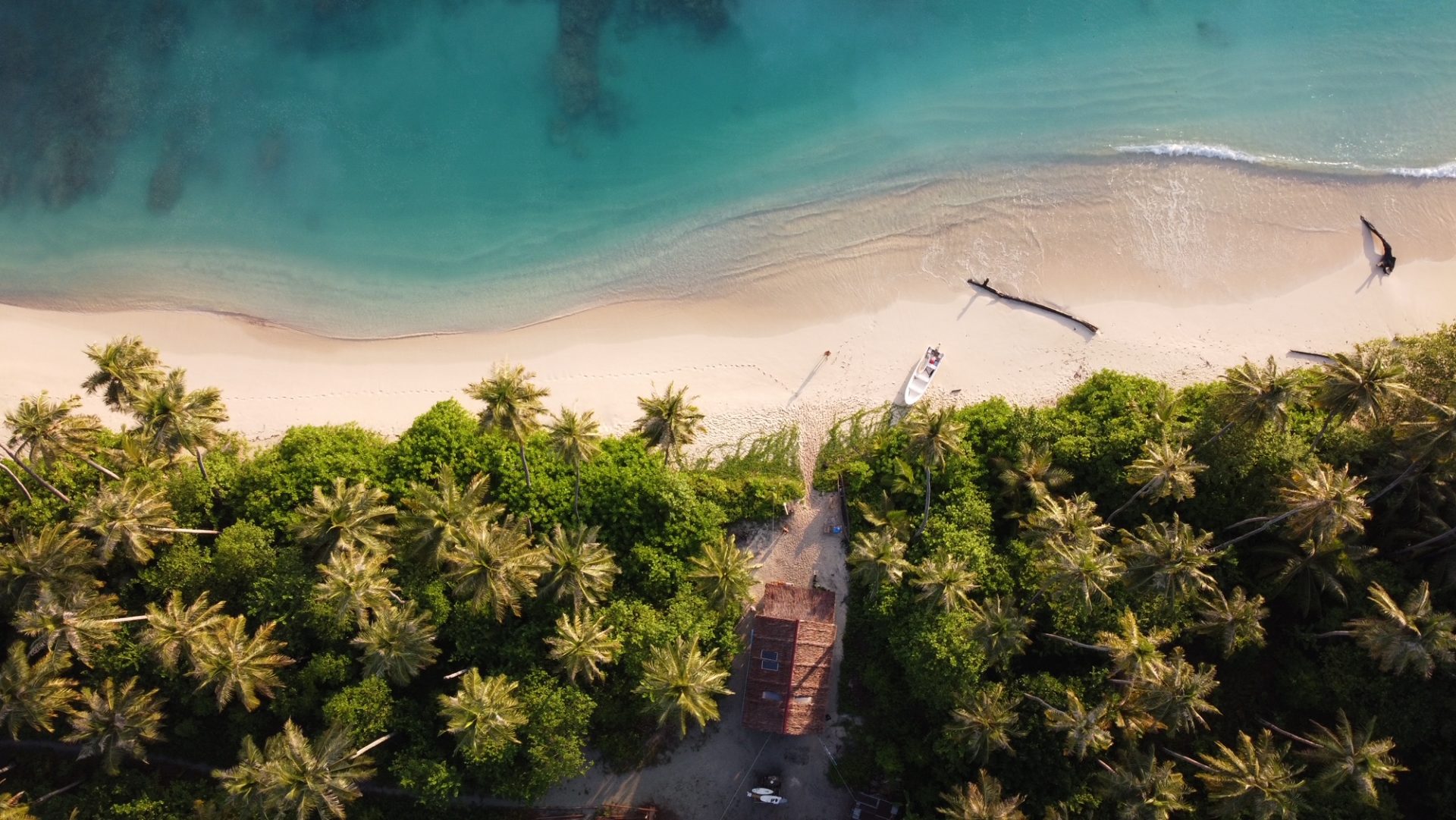
Apart from these considerations, there was also the small matter, as westerners, of adjusting to a culture very different to our own. The Pinang team is made up largely of people from nearby islands who, in the beginning, had little to no experience with the hospitality industry and who took a very non-western approach to life. Not to mention the fact that there was no common tongue between us. But we have since come to appreciate the warmth and unique rhythms of Indonesian culture as essential to our experience, whilst also initiating our indigenous team members into the particular expectations of the visiting westerner’s mind. Some of us have even begun to learn a touch of Bahasa, whilst our Indonesian friends have acquired bits and pieces of English. Essentially, we have met in the middle and found a way to make it work. In doing so, we have grown closer as a unit. Indeed, our local team forms the backbone of the operation and comprises a group about a dozen strong, including gardeners, a carpenter, security guard, captain, coconut tree climber, housekeeper, chef, and electrician, among others. These individuals have been vital in helping to get the project under way and in keeping it going. Critically, they have also helped to ensure its cultural authenticity is preserved.
Thanks to our efforts to protect and nurture its diverse ecosystem, the 50 ha Pinang today stands as one of the few poaching-free areas in Indonesia, and the blast fishing that was once prevalent in the area has been dramatically reduced, allowing the coral reefs to rebound. Sustainability too remains one of our guiding principles, and we derive what we can from the earth to answer our sustenance needs in a responsible manner. We employ fishing techniques that can be carried out in the long term without disturbing the delicate ocean ecosystem, whilst our permaculture garden helps to supply our fruit and vegetable needs and will later serve as a training centre where locals and visitors can learn sustainable farming practices and healthier dietary choices. We also believe that man has an essential role to play in the natural world, as a steward and participant who augments rather than disrupts the beauty of that sphere. With this in mind, we host artists and specialists from wide-ranging disciplines–permaculturists, landscape architects, sculptors, and others—to work on projects that go hand in hand with our vision for the island.
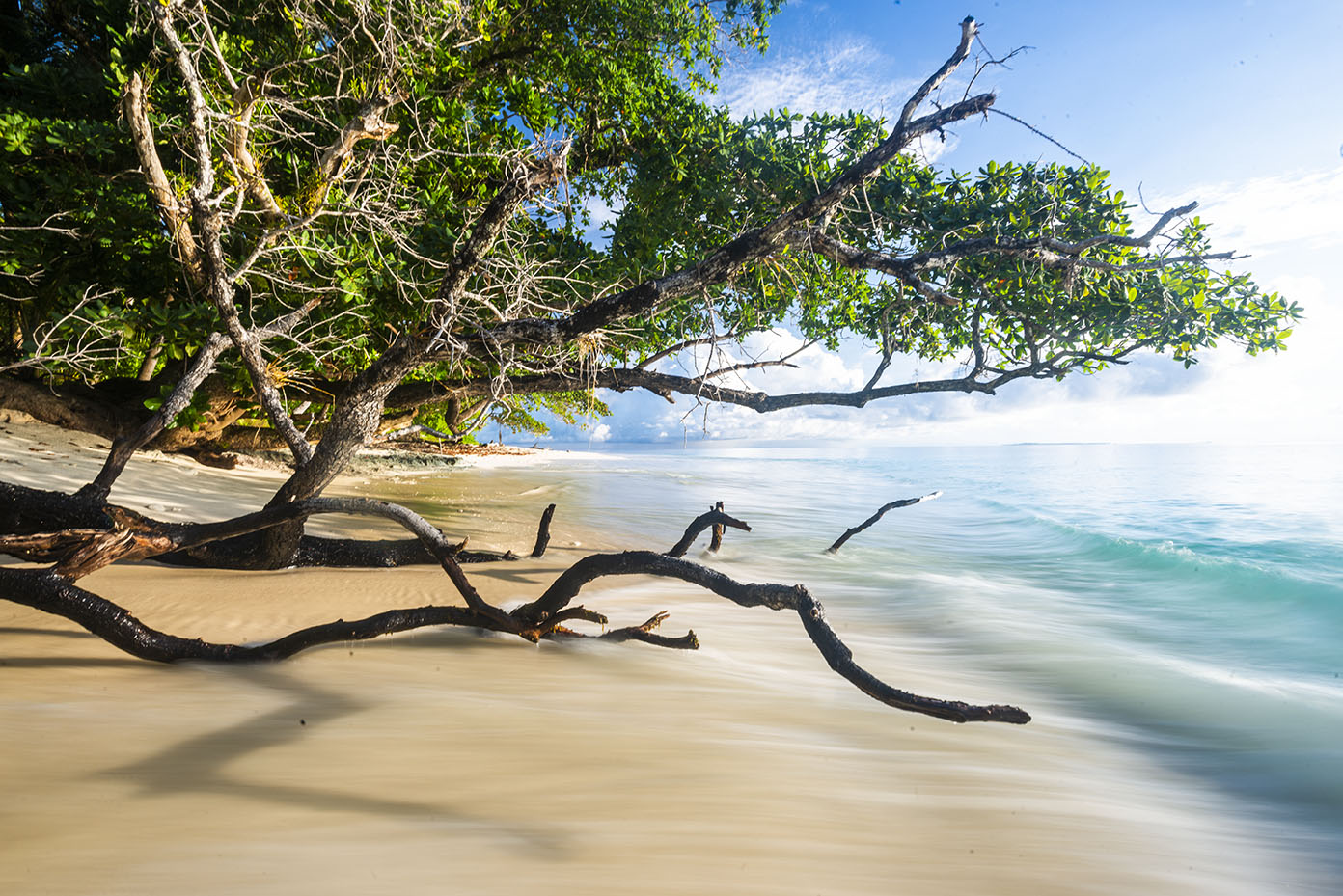
Concerning decor and amenities, we have adopted a rustic fusion that lies somewhere between east and west and offers just enough of western comforts along with a taste of the Indonesian exotic. The same goes for the cuisine. Lodgings are simple, minimalist, and built from locally procured materials, namely driftwood and coconut wood. As for recreation and adventure, there is no shortage of it: the aforementioned diving and fishing may be had readily, along with yoga, farming, cooking and more. And the surfing, well, it is world class, and one needn’t fight for a place among the waves either–the waters here are free from the crowding found at other, more widely-known, but by no means superior, surfing destinations.
Of course, we do not operate in a vacuum and know we are part of a greater whole. In that spirit, we remain involved with a number of NGOs. These include two that Tomas helped found back in 2014: Lestari and EcosystemImpact—both of which continue the good work he began on Bangkaru Island and in other parts of Indonesia—along with the Fifan Foundation, which works to improve maritime safety for tourism activities and local fishermen in our region. Through our support of these organisations, we are able to extend our reach to make an impact beyond our own borders. Still, it has always been Pinang itself that has served as the focal point and driving force behind this project, and so it remains. This is one of the last places in Indonesia untouched by the giant tourism industry, and it shows. The beauty of the island can’t help but captivate with its paradoxical amalgam of strength and fragility. It is a beauty that never ceases to amaze. And when here, you feel as though you’re at the end of the earth, with the power of nature surrounding you on all four sides, and there is nothing else quite like it.
The good news is we’re not keeping this gem to ourselves. On the contrary, in accordance with our original vision, we want to share it responsibly with other adventurous souls who have the faculty to appreciate the island’s raw and untamed beauty. And so, if that’s you, we invite you to join us on this continuing journey–whether that means taking advantage of its many exciting offerings, or simply securing some much-needed rest in the bosom of nature. No matter how you choose to spend your time here, as a contributor, you will necessarily become a participant in the project and all it stands for. You will become a part of the Pinang family. And when you do, we will welcome you.